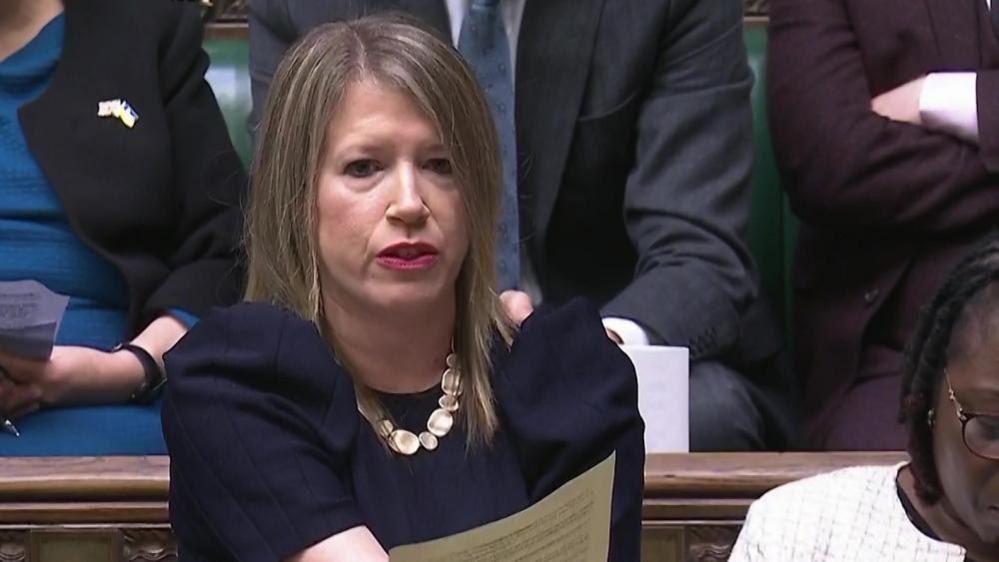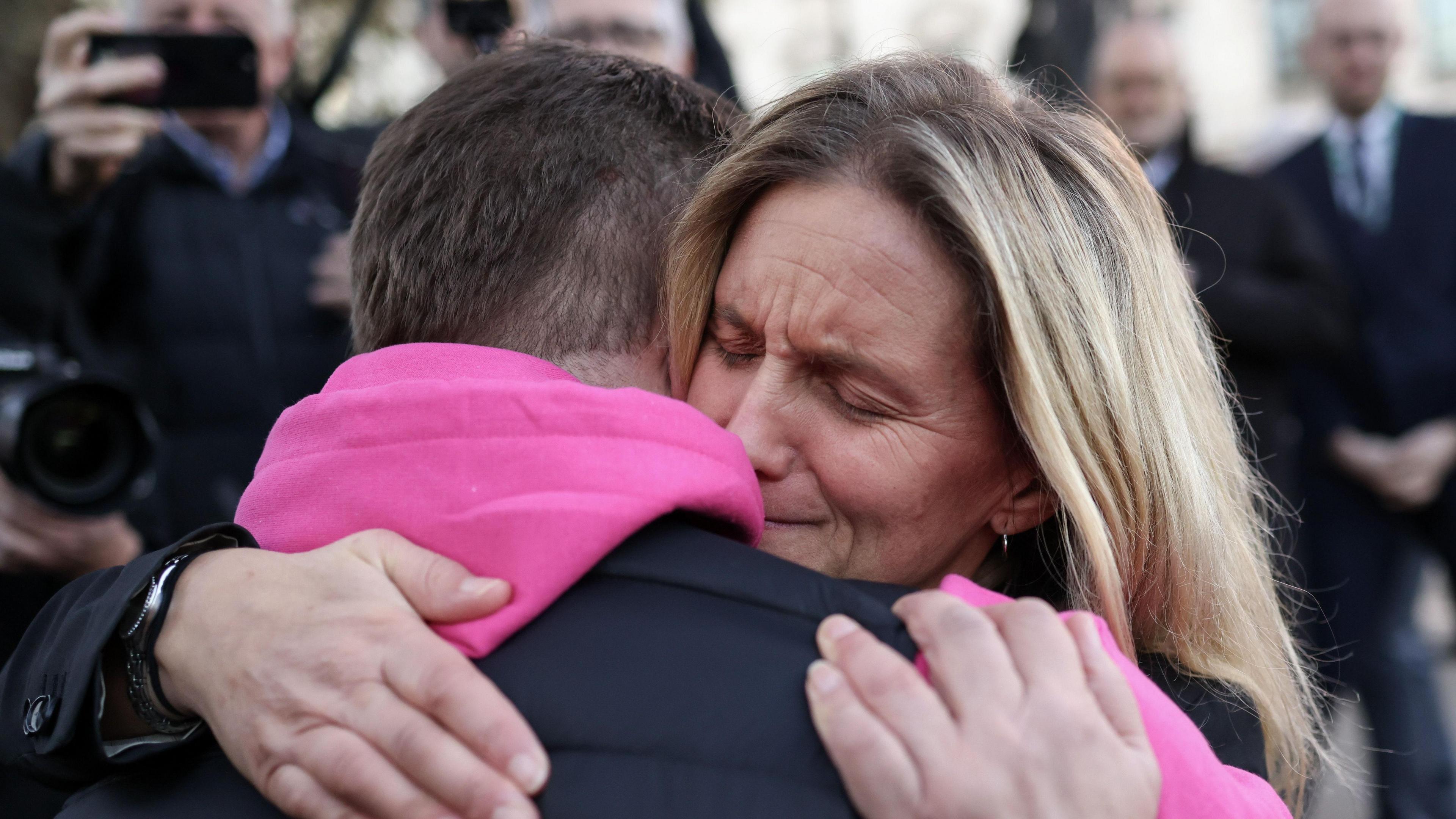MPs who backed assisted dying bill say concerns remain

Labour MP Marie Tidball voted in favour of the bill but wants the law amended to ensure doctors present all options to patients
- Published
MPs who voted in favour of the assisted dying bill have raised concerns about parts of it and want to see changes before giving it final approval.
Some are worried about the bill's provisions to allow doctors to raise assisted dying as an option without the terminally ill patient having asked for it first.
The proposed law would give adults with less than six months to live the right to end their life with the help of a doctor. It passed its first stage in the House of Commons on Friday with a majority of 55.
Those with concerns want to see them addressed as the bill goes through further scrutiny and rounds of voting over the coming months.
The bill allows medical practitioners "exercising their professional judgement to decide if, and when, it is appropriate to discuss the matter with a person".
The British Medical Association (BMA) said doctors should not be "prohibited in law from raising this subject".
But the BBC spoke to some MPs who voted in favour of the bill on Friday and are concerned about the planned provisions.
Mike Tapp, the Labour MP for Dover and Deal, said it must "be specifically stated in the bill that medical practitioners are not to raise assisted dying with any patient".
"It should only be discussed if it is raised by the patient," he told BBC News. "This helps mitigate the risk of accidental coercion, or the perception of a hint, at a time of immense emotional distress and vulnerability."
Roz Savage, the Liberal Democrat MP for South Cotswolds, said assisted dying should be "patient-led, not doctor-led".
"To my mind, it would be very wrong for a doctor, or indeed anybody, to suggest to a person that they should seek assisted dying," she said.
"I support the bill because it gives people choice, and this most important choice of their lives should not be in response to undue influence."
Under the bill, the right to an assisted death will be granted to adults with less than six months to live, provided their request is approved by two doctors and a High Court judge.
MPs supported the proposed law change on Friday in the first Commons vote on the issue in nearly a decade, following an emotional debate in the chamber.
There will be more months of debate, during which MPs and peers could choose to amend parts of the bill. It will require the approval of both Houses of Parliament before it becomes law.
More on assisted dying:
Marie Tidball, the Labour MP for Penistone and Stockbridge who has been disabled since birth, said the law must be amended to ensure doctors present all options to patients.
She told the Commons on Friday: "The choice of assisted dying as one option for adults when facing six months' terminal illness must be set alongside the choice of receiving the best possible palliative and end of life care, or it is no choice at all."
Chris Webb, the Labour MP for Blackpool South, was also among the MPs who expressed their concerns.
Campaigners behind the bill point to lobbying from the British Medical Association (BMA) against what they called a "gag" clause on what doctors could discuss with patients.
A spokesperson for the BMA told BBC News: "We do not believe that doctors should be prohibited in law from raising this subject during a consultation if they believed it was appropriate to do so.
"Doctors should be trusted to use their professional judgement to decide when and if a discussion about assisted dying would be appropriate, taking their cue from the patient as they do on all other issues."
A source close to Kim Leadbeater, the Labour MP bringing the bill, said she would be open to looking at this issue when the details are discussed in a committee of MPs next year.
Conservative MP Danny Kruger, a leading opponent of the legislation, said on Friday that it could be defeated at a later stage if MPs' concerns were not properly addressed.
He said many of his colleagues believed the bill was "very dangerous" and he hoped that if safeguards in the legislation were not strengthened they would choose to vote against it in the future.
MPs were given a free vote, meaning they could make a decision based on their own conscience rather than having to follow a party line.
Prime Minister Sir Keir Starmer and his Conservative predecessor Rishi Sunak voted in favour, while Tory leader Kemi Badenoch voted against.
Related topics
- Published30 November 2024

- Published30 November 2024
